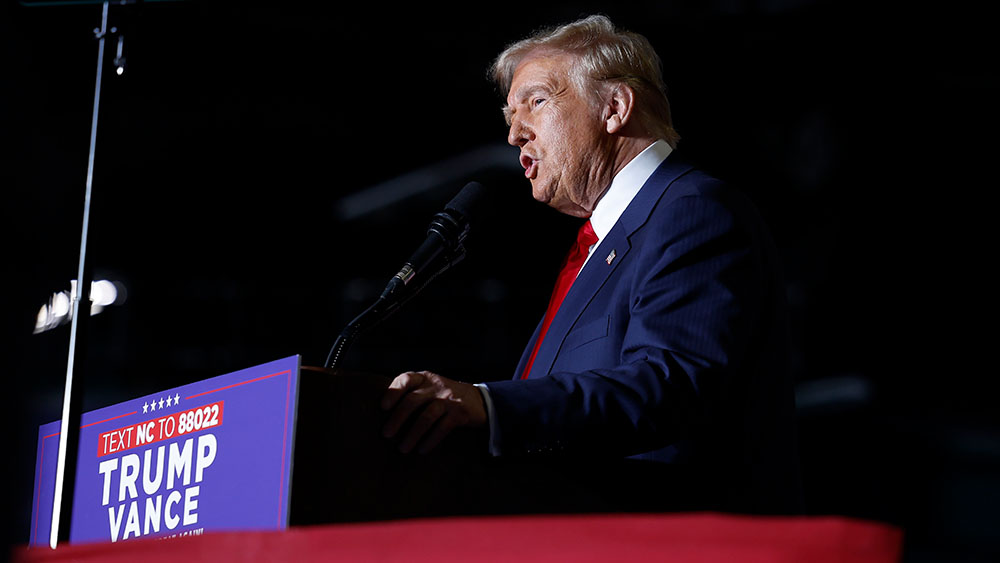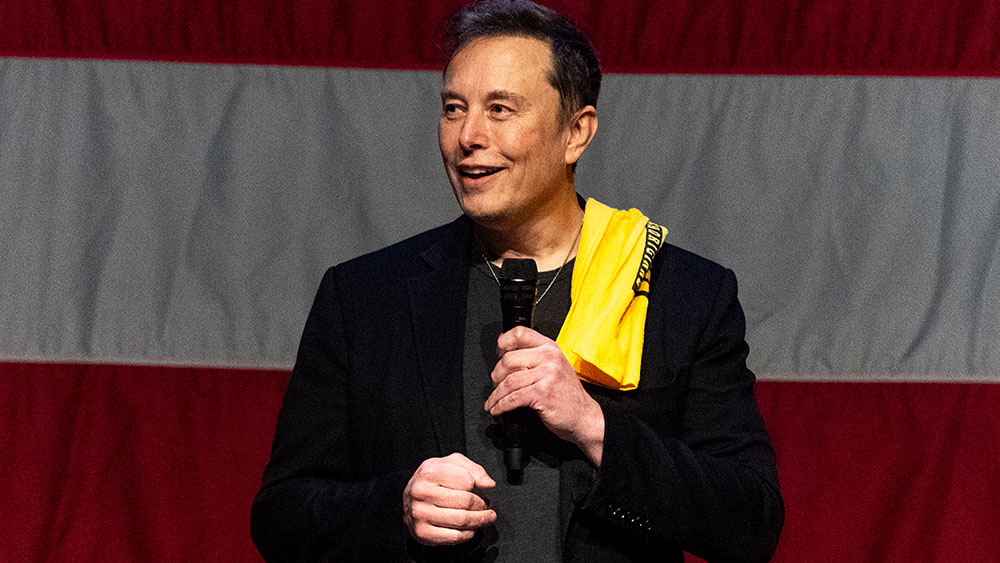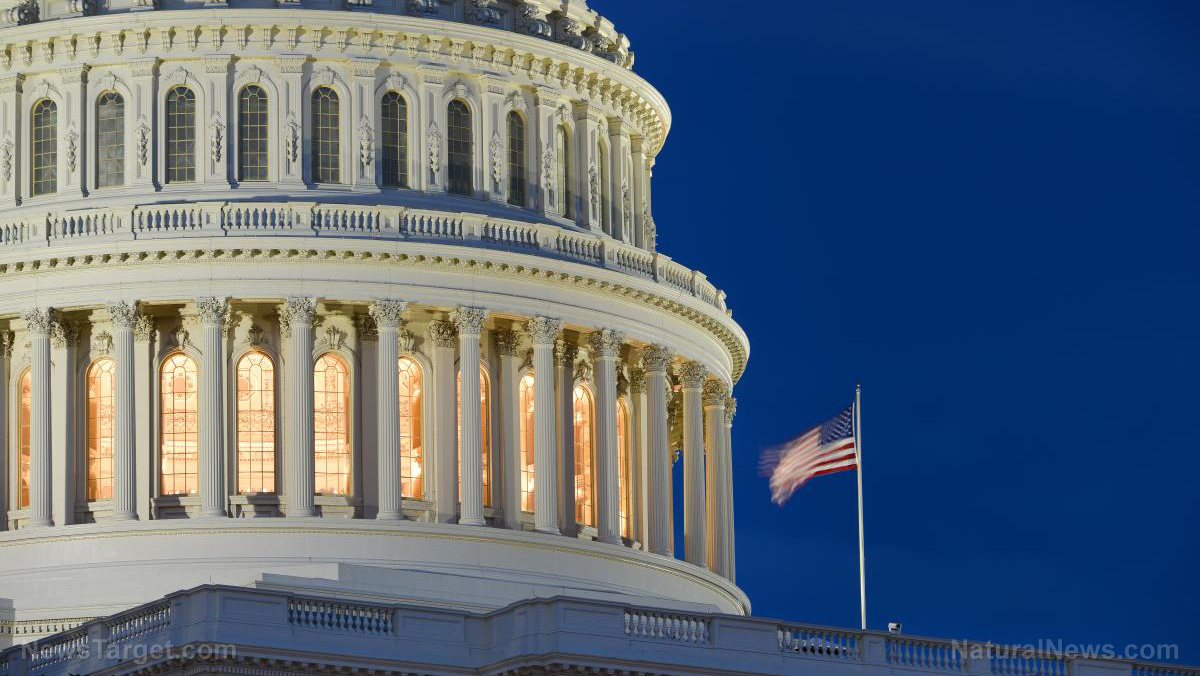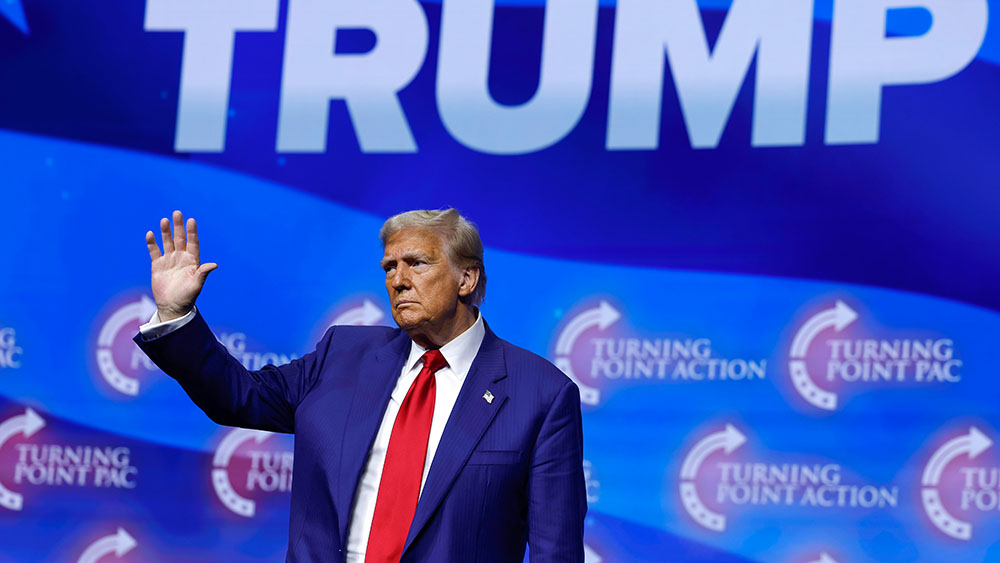 Parler
Parler Gab
Gab
President Donald J. Trump is floating the elimination of the federal income tax, with the revenue from it being replaced by income from import and export tariffs. The tax policy change, first floated by Trump during a recent campaign stop at a Bronx, New York barbershop, has caught fire on social media—even receiving the enthusiastic backing of former Congressman and libertarian firebrand Ron Paul (R-TX).
(Article by William Upton republished from TheNationalPulse.com)
While the concept might sound farfetched on the modern political stage, it was not that long ago that the U.S. federal government was entirely—or almost entirely—funded through tariff revenue. Trump emphasized this fact during his Bronx stop. “It had all tariffs—it didn’t have an income tax,” Trump remarked at the Knockout Barbershop. He expressed concern about the financial burden income taxes impose on citizens, stating, “They’re paying tax, and they don’t have the money to pay the tax.”
TRUMP’S TARIFF PLAN.
On the campaign trail, Trump has strongly pushed for a more aggressive U.S. tariff policy. The 2024 Republican presidential nominee has proposed introducing a broad tariff regime on foreign imports ranging from 10 to 20 percent, with a significant 60 percent tariff on goods imported from China. The former Republican president has also said the U.S. should retaliate against any nation that tariffs American goods—even if those tariffs are 100 or 200 percent.
Several nations with strong diplomatic and economic ties to the United States still maintain high tariffs on American goods, especially automobiles. Both Germany and Japan have been able to tariff American car makers for almost 80 years because of the post-World War II Marshall Plan. Trump, however, proposes that this arrangement should change with either the countries dropping their high tariffs or the U.S. enacting their own on German and Japanese cars.
Today, tariffs only account for about two percent of federal revenue, while income taxes comprise about 94 percent of the government’s cash flow. While a ramp-up in tariff use could significantly change this dynamic, cuts to federal spending would still likely be needed. Currently, U.S. imports total approximately $3 trillion annually, while income and payroll taxes bring in $4.2 trillion.
THE TRUTH ABOUT TARIFFS.
Lastly, Democrats and some anti-Trump Republicans have tried to brand tariffs as inflationary. However, these attacks are highly misleading and, in some instances, outright falsehoods. Tariffs are, in simple terms, a form of consumption tax. Like most taxes, consumption taxes are deflationary in their economic effect. Properly understood inflation is either caused by increased demand driven by an expanding money supply or by the constriction of the supply of goods through policy or other means.
Tariffs neither increase the monetary supply nor prevent consumers from accessing goods; they are merely taxes importers pay on foreign goods. The most famous tariff legislation in U.S. history, the Smoot-Hawley Act, had a deflationary impact on the economy, not an inflationary one.
Read more at: TheNationalPulse.com
Elon Musk endorses abolishing the Federal Reserve
By Belle Carter // Share
Californians vote to make crime illegal again
By News Editors // Share
AIPAC boasts of influence over Congress, ousting ‘eleven anti-Israel candidates’
By News Editors // Share
Governments continue to obscure COVID-19 vaccine data amid rising concerns over excess deaths
By patricklewis // Share
Tech giant Microsoft backs EXTINCTION with its support of carbon capture programs
By ramontomeydw // Share
Germany to resume arms exports to Israel despite repeated ceasefire violations
By isabelle // Share










